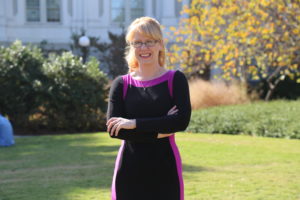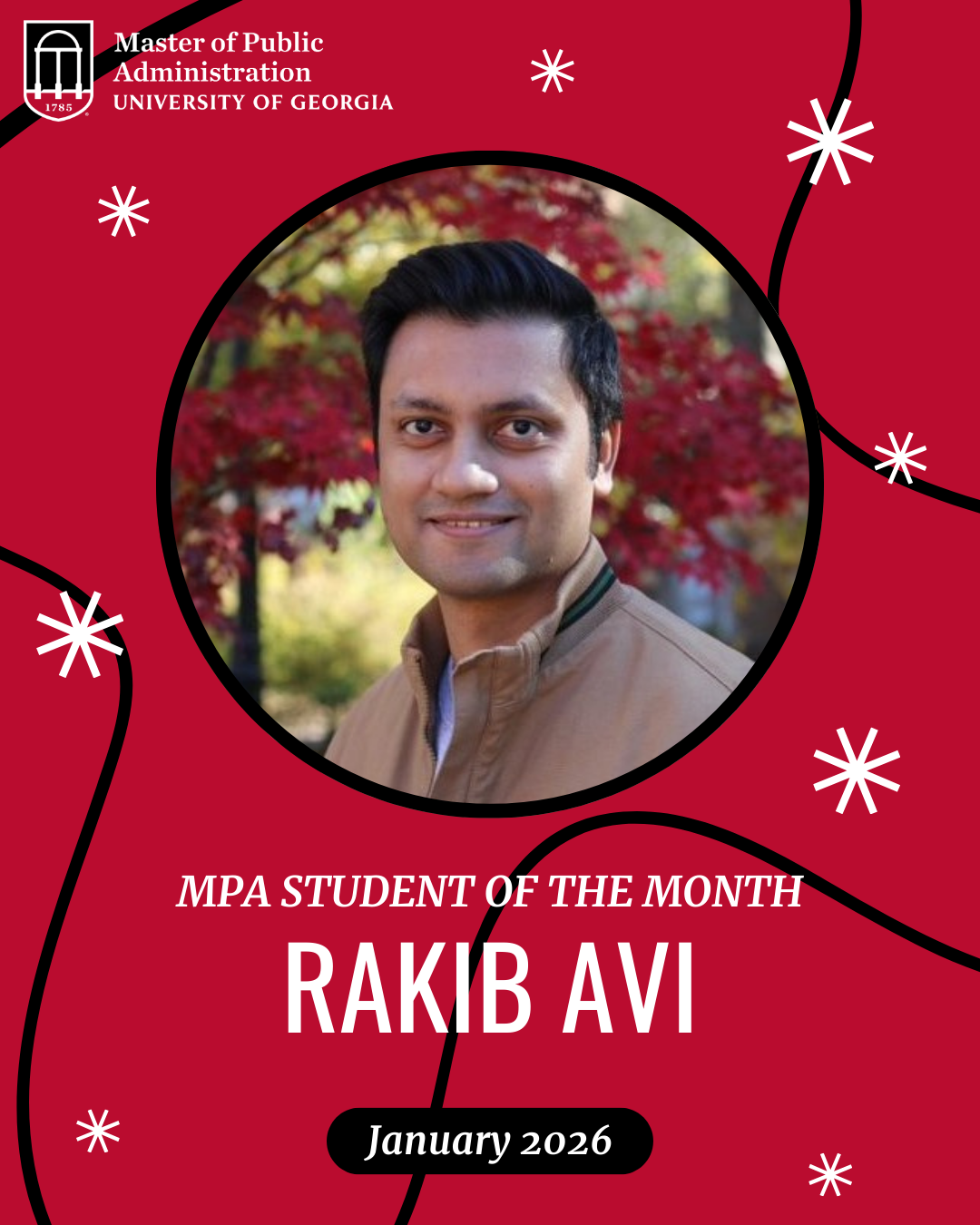
By Marlin Collier
For a person unfamiliar to the field, reading the abbreviations “IR,” “INGOs,” and “HR” might have you overwhelmingly crying “SOS”, but Dr. Amanda Murdie is here to make sense of all the abbreviations and the complexities behind them.
Murdie is a Professor of International Affairs and the Dean Rusk Scholar of International Relations at the School of Public and International Affairs at the University of Georgia. Murdie also currently serves as the graduate coordinator for the Department of International Affairs. Murdie’s research focuses on the behavior of international non-governmental organizations (INGOs) and their interactions with state governments and people.
Most impressively, Murdie does consulting work for the International Council of Voluntary Agencies in Geneva, Switzerland. Murdie was honored as their keynote speaker at their annual conference in March 2016. Her speech focused on what academics know about civil society and how and why it’s being restricted today. Murdie pays close attention to historical causal factors and how those factors impact humanitarian civil society today.
Murdie also recently presented at the 2017 SSK Human Rights Forum in Seoul, South Korea. Her research on closing space (the phenomenon of INGOs being pushed out of areas that need aid) and why closing space occurs was discussed. It’s easy to think everyone supports human rights, but Murdie says many states may feel threatened or undermined by INGOs. This has caused her and other academics to rethink how states and individuals view human rights. Her presentation in Seoul did that very thing. “I was really excited about this project because we were able to ask people about their perceptions about human rights more broadly,” says Murdie.
Murdie’s interest in INGOs stemmed early: “Growing up I was involved in some activist organizations that were both very localized and had an international component, and I loved the passion I saw in the people that were working in these organizations. But not always could I see that they were making a difference. Sometimes they just seemed to get together and talk about issues or have a potluck. Other times you had groups that were really active and seemed to get a lot done. I was interested as to why some organizations are really successful doing a lot of stuff and some organizations were not so successful.”
INGOs are organizations like Oxfam, the Red Cross, CARE International, and Amnesty International. These groups provide aid and relief to developing countries or countries in crisis. Some INGOs, like the ones listed, are huge groups with huge budgets. Other INGOs might be smaller or more specialized, such as focusing primarily on HIV/AIDS prevention or human rights violations. “There’s a lot of variation in how these organizations are treated, and there’s a lot of variation in what these organizations do… It’s interesting to see that variation, and I think likely these organizations have effects on politics on the ground,” says Murdie.
At first glance, INGOs may seem like merely bureaucratic organizations helping those in need, but they are much more. “They (INGOs) are important in one regard because there are so many of them! There’s over 60,000 INGOs, and in many regards we don’t know a lot about these organizations,” says Murdie. “In some countries, they don’t have to provide much information to their government, and in some countries they’re highly regulated and often repressed.”
Even though many assume these private companies come in to help altruistically, INGOs often receive criticism of not actually helping or potentially even hurting local populations. Murdie has written the book Help or Harm: The Human Security Effects of International NGOs to explore this fine line between help and hurt. “Because not all NGOs are regulated and because there can be a lot of money directed at NGOs, not all NGOs are good NGOs. If you have a situation where there’s been a disaster or civil war, a lot of NGOs come into the country to get funds while the disaster is going on. Sometimes in those situations if there’s widespread corruption in the country, the NGOs can end up doing more harm to the local population than we’d like to hope or think would happen,” Murdie says.
The interest in human rights and INGOs has grown substantially in past years here at SPIA. Murdie teaches undergraduate classes on terrorism and war and human security while advising graduate students also interested in international relations. Murdie says that continued interest is what she loves most about UGA. “We are committed to research on exactly what I study. There’s a large group of professors that are interested in similar questions to what I study, and it’s really nice to have that energy around me in a department.”







